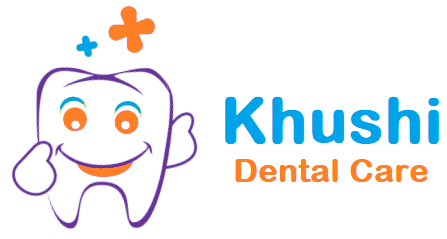Root canal treatment (also called Endodontics) is needed when the pulp inside your tooth becomes infected through tooth decay or damaged by an injury to your mouth. This infection may spread through the root canal system, which could eventually lead to an abscess, causing a great deal of discomfort. If root canal treatment is not carried out, the tooth may need to be taken out.
Child Dentistry: Nurturing Healthy Smiles from an Early Age
Child dentistry, also known as pediatric dentistry, is a specialized branch of dentistry that focuses on the oral health care needs of infants, children, and adolescents. It plays a crucial role in nurturing healthy smiles from an early age, promoting proper dental hygiene habits, and ensuring the overall oral well-being of children. In this article, we will explore the significance of child dentistry, the importance of early dental care, and the key aspects involved in providing comprehensive dental care for children.
Child dentistry is essential for several reasons. First and foremost, it helps establish a strong foundation for a lifetime of oral health. Early dental visits allow dentists to monitor the growth and development of the child’s teeth, jaw, and oral structures. By detecting and addressing any potential issues or abnormalities at an early stage, preventive measures can be taken to ensure proper oral health and prevent more extensive and costly treatments in the future.
Another significant aspect of child dentistry is educating children and their parents about proper dental care. Dentists specializing in pediatric dentistry are trained to communicate and engage with children in a friendly and age-appropriate manner. They provide guidance on oral hygiene practices, such as brushing and flossing techniques, and educate children about the importance of maintaining a healthy diet and avoiding harmful habits like excessive sugar consumption or thumb-sucking.
Regular dental visits for children also include comprehensive examinations and cleanings. During these visits, the dentist will assess the child’s oral health, identify any signs of tooth decay or gum disease, and perform professional cleanings to remove plaque and tartar buildup. These preventive measures help maintain healthy teeth and gums, reduce the risk of cavities, and promote good oral hygiene habits from a young age.
Child dentistry also addresses specific dental concerns that are unique to children. For example, dentists may monitor the eruption of primary (baby) teeth and ensure that they are coming in correctly. They also provide treatments for common childhood dental issues such as tooth decay, dental injuries, or misaligned teeth. Early detection and intervention are crucial in these cases to prevent complications and promote proper oral development.
One essential aspect of child dentistry is creating a positive and comfortable dental experience for children. Dentists specializing in pediatric dentistry understand the specific needs and fears that children may have when visiting the dentist. They create a child-friendly and welcoming environment, use gentle techniques, and employ behavior management techniques to ensure that children feel at ease during dental procedures. This positive dental experience helps shape children’s attitudes towards oral health and establishes a foundation for lifelong dental care.
In addition to dental treatments, child dentistry also emphasizes the importance of preventive measures such as dental sealants and fluoride treatments. Dental sealants are thin, protective coatings applied to the chewing surfaces of the back teeth to prevent decay in the deep grooves and fissures. Fluoride treatments, on the other hand, involve the application of fluoride to strengthen tooth enamel and prevent tooth decay. These preventive measures are highly effective in reducing the risk of cavities and promoting optimal oral health in children.
Parents also play a vital role in child dentistry. They are encouraged to be actively involved in their child’s oral health care, ensuring that regular dental visits are scheduled, and oral hygiene practices are maintained at home. Parents can serve as positive role models by demonstrating proper brushing and flossing techniques and promoting a healthy diet that is low in sugary foods and beverages.


